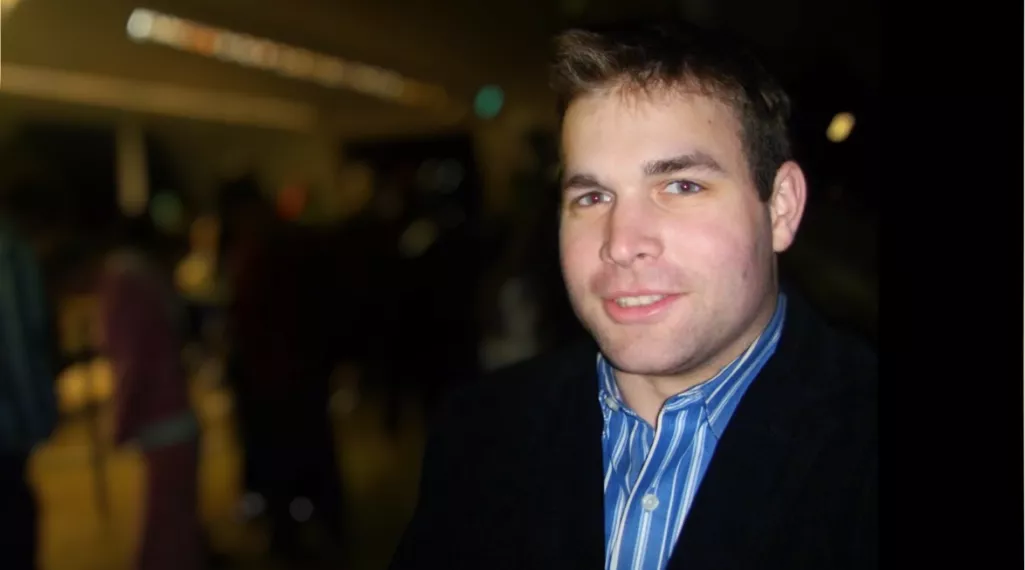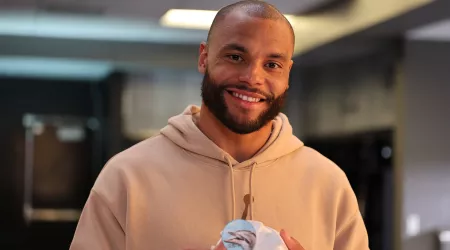
John and Mary: parents honor son who died from CRC by talking screening & stigma

In February of 2022, John and Mary experienced the unimaginable. Their 36-year-old son, Jonathan, died of stage IV colon cancer. Though Jonathan had been dealing with ulcerative colitis from the time he was twelve, no one would have predicted this outcome twenty-four years later.
While speaking about the importance of colorectal cancer screening won’t erase the pain that comes from losing a child, it could very well lead to reduced stigmas and saved lives. As John and Mary continue to grieve the death of their son, they are determined to share his story in the hopes of preventing a similar outcome for others.
Jonathan’s Younger Years
Jonathan was the youngest of John and Mary’s two sons. When Jonathan was twelve, his older brother, Matthew, noticed blood in his stool and told their parents.
“I don’t think Jonathan was comfortable talking to anyone about these issues,” Mary said. “I’m glad his brother decided to speak up or we might have never known.”
Shortly thereafter, Jonathan was diagnosed with ulcerative colitis.
“Jonathan had to go to the doctor every week for years to get blood tests,” John said. “He hated going. He was constantly being put on new drugs, and it was a really hard diagnosis for a young boy to deal with.”
“He had to go to the bathroom all the time,” Mary said. “Everywhere we went, he first had to figure out where the bathroom was. There was a stigma at school about it and we think he might have been bullied.”
Ulcerative colitis, an autoimmune condition and type of irritable bowel disease, is associated with higher risk for developing colorectal cancer. Therefore, frequent screening is often medically necessary to decrease these risks.
While Jonathan was under John and Mary’s care, he received regular colonoscopies. However, when he moved out of the house as an adult, his parents had a harder time getting him to comply with his recommended screenings.
“We always told Jonathan to schedule his yearly screenings,” Mary said. “But, he didn’t like to be babied or controlled. He stopped telling us things and became more afraid of going to the doctor as an adult. Even still, his last colonoscopy was just nine months before he was diagnosed. An aggressive cancer can come on incredibly fast.”
Jonathan’s Colon Cancer Diagnosis
In 2019, Jonathan was no longer able to avoid going to the doctor’s. A sudden bowel obstruction led to an emergency colectomy and a stage III colon cancer diagnosis.
“He started treatment right away,” John said. “The chemo seemed to be working for about eight months and we hoped he would go into remission. Then, before we knew it, there was cancer metastasis all the way up his spinal cord and into his brain along with every major organ. Things escalated tremendously fast.”
In what seemed like a horrific blink of an eye, John and Mary were suddenly facing every parent’s worst nightmare.
“Before we knew it, we were in Sloan Kettering putting our son on palliative care,” Mary said. “All we could do was make him as comfortable as possible during his last days. I honestly don’t know how we got through it.”
Just days after Jonathan’s 36th birthday, John and Mary would say their ultimate goodbyes.
“It was so overwhelming and horrific,” John said. “You’re told the information ahead of time by the doctors – that your child only has x percentage chance of living – but then all of the sudden it explodes inside of you like a volcano when it comes true. It is absolutely devastating.”
Screening & Stigma – Why It Matters
While some people may have been overcome by this depth of grief, John and Mary decided to channel their energy into doing something proactive in honor of Jonathan’s memory. Now, they volunteer with the Alliance’s Never Too Young Program and do outreach with BlueHQ comfort bags at Memorial Sloan Kettering Cancer Center. In everything they do, they have a message they want to share with others.
“I want people to know there’s absolutely nothing embarrassing about getting a colonoscopy,” Mary said. “If you have a sore throat, you have a sore throat. You talk to your doctor and you get testing and treatment. There shouldn’t be a stigma for having issues in other parts of your body.”
Having lost their son to a late colon cancer diagnosis, John and Mary know the importance of timely screening more than most.
“There needs to be more of a sense of urgency for people with screening,” John said. “With more vigilance, we can prevent these types of tragedies from occurring. We need our schools and teachers talking about this. We need to help everyone understand the kind of protocols that are necessary to mitigate this disease. And, we need to help people to not feel embarrassed. There’s only so much a doctor can do once a colorectal cancer diagnosis has progressed.”
Sharing a Difficult Story – Colorectal Cancer Isn’t Just a Disease of the Elderly
It’s not easy to talk about one of the most painful experiences a person can endure. Still, John and Mary believe it is crucial to keep speaking up in the hopes of spreading awareness about the fourth most common cancer and the second deadliest.
“There’s this myth we need to attack and that’s that colorectal cancer is a disease of the elderly,” John said. “The statistics are now showing that younger people are being more affected by CRC. Jonathan was living proof of that.”
“There’s so much misinformation and really just a lack of information,” Mary said. “We need to alert people – especially young people – to keep their guard up with this disease.”
John and Mary describe what it’s like having gone through this incredibly difficult experience.
“He was 36 years old – he wasn’t our little boy anymore,” Mary said. “But, as parents, we will always remember him as our little boy.”
“We’re going through a lot of grief,” John said. “It will never be the same. It’s like half of your body has been cut off. It’s like being in a war zone where you’re continually suffering from PTSD. I wouldn’t wish this on anyone, and that’s why we speak up.”
While John and Mary move through this difficult season of life, their harrowing story serves as a reminder to take the Alliance’s free screening quiz and stay vigilant to the signs and symptoms of CRC.
Join the Alliance as we help John and Mary break down stigmas by normalizing conversations about colorectal cancer. We might not be able to bring Jonathan back but, together, we can realize a world without colorectal cancer – a world where parents don’t lose their children to this terrible disease.
Top resources

Legislation introduced to address young-onset CRC
Explore the urgent need for the Colorectal Cancer Early Detection Act (HR 7714), legislation aimed at combating the rising incidence of colorectal cancer among younger adults through enhanced screening, education, and research.

Dak Prescott joins Alliance to ‘LEAD FROM BEHIND’
Initiative aims to reduce stigma and educate about screening choices, as the Colorectal Cancer Alliance launches a health equity fund to decrease disparities.

Act now to create a coverage pathway for future blood-based detection
On the horizon are blood tests that have shown the ability to detect a variety of cancers including colorectal and rare cancers. Though these tests are still in development and are not yet approved by the FDA, clinical trials have shown impressive results.





